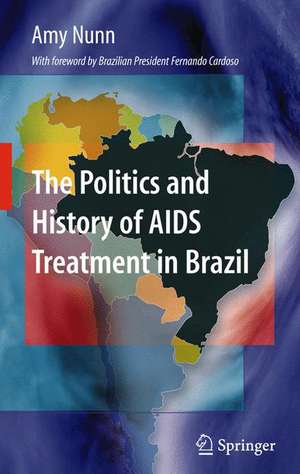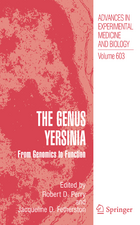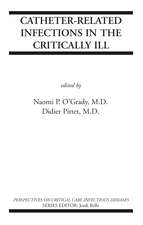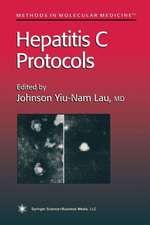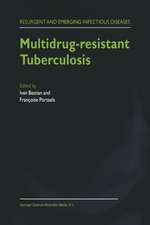The Politics and History of AIDS Treatment in Brazil
Autor Amy Nunnen Limba Engleză Hardback – 19 dec 2008
| Toate formatele și edițiile | Preț | Express |
|---|---|---|
| Paperback (1) | 658.37 lei 38-44 zile | |
| Springer – 19 noi 2010 | 658.37 lei 38-44 zile | |
| Hardback (1) | 715.35 lei 43-57 zile | |
| Springer – 19 dec 2008 | 715.35 lei 43-57 zile |
Preț: 715.35 lei
Preț vechi: 753.01 lei
-5% Nou
Puncte Express: 1073
Preț estimativ în valută:
136.93€ • 148.78$ • 115.09£
136.93€ • 148.78$ • 115.09£
Carte tipărită la comandă
Livrare economică 21 aprilie-05 mai
Preluare comenzi: 021 569.72.76
Specificații
ISBN-13: 9780387096179
ISBN-10: 0387096175
Pagini: 186
Ilustrații: XXIII, 186 p.
Dimensiuni: 155 x 235 x 15 mm
Greutate: 0.41 kg
Ediția:2009
Editura: Springer
Colecția Springer
Locul publicării:New York, NY, United States
ISBN-10: 0387096175
Pagini: 186
Ilustrații: XXIII, 186 p.
Dimensiuni: 155 x 235 x 15 mm
Greutate: 0.41 kg
Ediția:2009
Editura: Springer
Colecția Springer
Locul publicării:New York, NY, United States
Public țintă
ResearchCuprins
The AIDS Crisis and Democratization in Brazil.- Democratization and Institutional Precursors to AIDS Treatment in Brazil.- Development of Brazil’s First AIDS Treatment Institutions in a New Democracy.- Legislative Reforms and AIDS Treatment in the 1990s.- Development of Brazil’s Contemporary AIDS Treatment Institutions.- Brazil’s Contributions to Global Essential Medicines Institutions.- Conclusion.
Recenzii
From the reviews:
"Amy Nunn’s book The Politics and History of AIDS Treatment in Brazil maps the political landscape that led to this landmark in public health policy, and the subsequent growth of Brazil’s AIDS treatment programme into one of the largest and most equitable in the world. ...the story Nunn tells is absolutely fascinating." -Elizabeth Pisani, The Lancet, Vol 374
"This is an exceptional academic work, one that deserves to be widely read, and that in my opinion will come to be considered the leading historical study on the social and policy response to the HIV/AIDS epidemic in Brazil – and one of the major policy studies on the response to the AIDS epidemic anywhere in the world." -Richard Parker, Mailman School of Public Health, Columbia University
“The historical accuracy and completeness of the material presented is exceptional. The general lines of argument and analyses are insightful, and the quality of the historical data overall is outstanding. The Politics and History of AIDS Treatment in Brazil deserves to be read by scholars in fields ranging from public health to international relations, development studies, the history of medicine and similar fields. It is a book that cuts across disciplinary divides and provides new insight into the social and political history of Brazil.” (Richard Parker, Bulletin of Latin American Research, Vol. 30 (4), 2011)
"Amy Nunn’s book The Politics and History of AIDS Treatment in Brazil maps the political landscape that led to this landmark in public health policy, and the subsequent growth of Brazil’s AIDS treatment programme into one of the largest and most equitable in the world. ...the story Nunn tells is absolutely fascinating." -Elizabeth Pisani, The Lancet, Vol 374
"This is an exceptional academic work, one that deserves to be widely read, and that in my opinion will come to be considered the leading historical study on the social and policy response to the HIV/AIDS epidemic in Brazil – and one of the major policy studies on the response to the AIDS epidemic anywhere in the world." -Richard Parker, Mailman School of Public Health, Columbia University
“The historical accuracy and completeness of the material presented is exceptional. The general lines of argument and analyses are insightful, and the quality of the historical data overall is outstanding. The Politics and History of AIDS Treatment in Brazil deserves to be read by scholars in fields ranging from public health to international relations, development studies, the history of medicine and similar fields. It is a book that cuts across disciplinary divides and provides new insight into the social and political history of Brazil.” (Richard Parker, Bulletin of Latin American Research, Vol. 30 (4), 2011)
Notă biografică
Dr. Amy Nunn is a postdoctoral research fellow in the Division of Infectious Diseases at Brown Medical School where she conducts research on HIV testing, HIV risk behaviors, and how to best link people living with HIV/AIDS to treatment and care services. A social scientist by training, Dr. Nunn has worked in several countries where she conducted domestic and international research on a variety of health policy topics including HIV/AIDS, patient safety, access to reproductive health services, and family planning. Her current HIV/AIDS research is financed by the National Institutes of Health and the Brown University Center for AIDS Research. She has received research grants from Harvard University, the US Department of Defense, and the US Department of Education. Dr. Nunn holds masters and doctoral degrees from the Harvard School of Public Health and is a Fulbright Scholar.
Textul de pe ultima copertă
The Politics and History of AIDS Treatment in Brazil
Amy Nunn, Center for AIDS Research, Brown University Medical School, Providence
In 1992, the World Bank warned that Brazil would face enormous challenges confronting the AIDS crisis, and forecast that Brazil would have 1.2 million people living with HIV by the year 2000. Today, AIDS prevalence in Brazil is approximately 660,000, and Brazil is home to the oldest and one of the largest public AIDS treatment programs in the developing world. Challenging the conventional wisdom that AIDS treatment was infeasible in developing countries, Brazil has halved AIDS-related deaths and dramatically reduced AIDS-related morbidity. Today, Brazil’s AIDS program is considered a global model.
The first book to narrate Brazil’s complex and inspiring history, The Politics and History of AIDS Treatment in Brazil traces development of Brazil’s AIDS treatment policies during the country’s tumultuous path to democracy as its government redefined access to health care as a basic right. Meticulously researched, and drawing on dozens of interviews with politicians, activists, people living with HIV/AIDS, pharmaceutical executives and health care providers, this profound volume explains the key role of Brazil in raising global AIDS consciousness. The Politics and History of AIDS Treatment in Brazil also explores the global implications of Brazil’s program and identifies the challenges ahead for addressing HIV/AIDS in the developing world.
In clear, accessible detail, The Politics and History of AIDS Treatment in Brazil examines:
"This is an exceptional academic work, one that deserves to be widely read, and that in my opinion will come to be considered the leading historical study on the social and policy response to the HIV/AIDS epidemic in Brazil – and one of the major policy studies on the response to the AIDS epidemic anywhere in the world."
Richard Parker, Mailman School of Public Health, Columbia University
With foreword by former Brazilian President Fernando Cardoso.
Amy Nunn, Center for AIDS Research, Brown University Medical School, Providence
In 1992, the World Bank warned that Brazil would face enormous challenges confronting the AIDS crisis, and forecast that Brazil would have 1.2 million people living with HIV by the year 2000. Today, AIDS prevalence in Brazil is approximately 660,000, and Brazil is home to the oldest and one of the largest public AIDS treatment programs in the developing world. Challenging the conventional wisdom that AIDS treatment was infeasible in developing countries, Brazil has halved AIDS-related deaths and dramatically reduced AIDS-related morbidity. Today, Brazil’s AIDS program is considered a global model.
The first book to narrate Brazil’s complex and inspiring history, The Politics and History of AIDS Treatment in Brazil traces development of Brazil’s AIDS treatment policies during the country’s tumultuous path to democracy as its government redefined access to health care as a basic right. Meticulously researched, and drawing on dozens of interviews with politicians, activists, people living with HIV/AIDS, pharmaceutical executives and health care providers, this profound volume explains the key role of Brazil in raising global AIDS consciousness. The Politics and History of AIDS Treatment in Brazil also explores the global implications of Brazil’s program and identifies the challenges ahead for addressing HIV/AIDS in the developing world.
In clear, accessible detail, The Politics and History of AIDS Treatment in Brazil examines:
- Brazil’s long history of AIDS treatment in the context of progressive social movements.
- The coalition-building between politicians, activists and government agencies in developing the country’s National AIDS Program.
- The role of the executive, legislative and judicialbranches of government in promoting access to drugs for AIDS treatment in Brazil.
- The government’s controversial decisions to produce generic AIDS drugs and challenge multinational pharmaceutical corporations regarding AIDS drug prices.
- Brazil’s ongoing efforts to promote global access to AIDS treatment and the country’s contributions to international health, human rights, and trade law related to access to medicines.
- The impact of the Brazilian experience on global AIDS drug prices and global AIDS treatment policy.
"This is an exceptional academic work, one that deserves to be widely read, and that in my opinion will come to be considered the leading historical study on the social and policy response to the HIV/AIDS epidemic in Brazil – and one of the major policy studies on the response to the AIDS epidemic anywhere in the world."
Richard Parker, Mailman School of Public Health, Columbia University
With foreword by former Brazilian President Fernando Cardoso.
Caracteristici
Foreword by Fernando Cardoso, former president of Brazil Includes 91 interviews with experts on the development of AIDS policy in Brazil, including politicians, AIDS activists and people living with AIDS, and researchers
